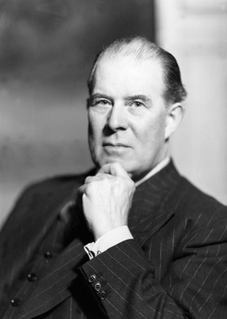A Quote by Terence McKenna
Our self discoveries make us each a microcosm of the larger pattern of history. The inertia of introspection leads toward recollection, for only through memory is the past recaptured and understood. In the fact of experiencing and making the present, we are all actors.
Related Quotes
Living in the present moment requires discretion toward memory. Without memory we'd have amnesia. What good would there be in that? Offer discretion and discernment for our past with a broad spectrum of forgiveness. As for our present moment, delight. And dedication to remain fully present to all the possibility.
a perception of the cosmic unity of this higher level. And a feeling of timelessness, the feeling that what we know as time is only the result of a naive faith in causality - the notion that A in the past caused B in the present, which will cause C in the future, when actually A, B, and C are all part of a pattern that can be truly understood only by opening the doors of perception and experiencing it... in this moment... this supreme moment... this Kairos.
History in Burckhardt's words is 'the record of what one age finds worthy of note in another.' The past is intelligible to us only in light of the present; and we can fully understand the present only in light of the past. To enable man to understand the society of the past and to increase his mastery over the society of the present is the dual function of history.
When everything is dark, when we are surrounded by despairing voices, when we do not see any exits, then we can find salvation in a remembered love, a love which is not simply a recollection of a bygone past but a living force which sustains us in the present. Through memory, love transcends the limits of time and offers hope at any moment of our lives.
I had a massive heart attack, and in my belief that I was close to dying, I took the opportunity to teach my son about death. That lesson increased his faith in such a way that he completely accepted all the changes that life brings us. He learned that only the present exists. From that moment on, he began living in the present time, knowing that the future is just a possibility, and without believing all the opinions from the past. He understood that there are no guides, or masters. Each one of us is our own guru, and we can only save ourselves.
Memory is corrupted and ruined by a crowd of memories. If I am going to have a true memory, there are a thousand things that must first be forgotten. Memory is not fully itself when it reaches only into the past. A memory that is not alive to the present does not remember the here and now, does not remember its true identity, is not memory at all. He who remembers nothing but facts and past events, and is never brought back into the present, is a victim of amnesia.
It seems to me, that this, too, is how memory works. What we remember of what was done to us shapes our view, molds us, sets our stance. But what we remember is past, it no longer exists, and yet we hold on to it, live by it, surrender so much control to it. What do we become when we put down the scripts written by history and memory, when each person before us can be seen free of the cultural or personal narrative we've inherited or devised? When we, ourselves, can taste that freedom.
History produces not only the forces of domination but also the forces of resistance that press up against and are often the objects of such domination. Which is another way of saying that history, the past, is larger than the present, and is the ever-growing and ongoing possibility of resistance to the present’s imposed values, the possibility of futures not unlike the present, futures that resist and transform what dominates the present.
Why do we not exhaust the heritage of the ages, spiritual and material for our immediate pleasure, and let posterity go hang? So far as simple rationality is concerned, self-interest can advance no argument against the appetite of present possessors. Yet within some of us, a voice that is not the demand of self-interest or pure rationality says that we have no right to give ourselves enjoyment at the expense of our ancestors' memory and our descendants' prospects. We hold our present advantages only in trust.
There are some places which, seen for the first time, yet seem to strike a chord of recollection. "I have been here before," we think to ourselves, "and this is one of my true homes." It is no mystery for those philosophers who hold that all which we shall see, with all which we have seen and are seeing, exists already in an eternal now; that all those places are home to us which in the pattern of our life are twisting, in past, present and future, tendrils of remembrance round our heart-strings.






































